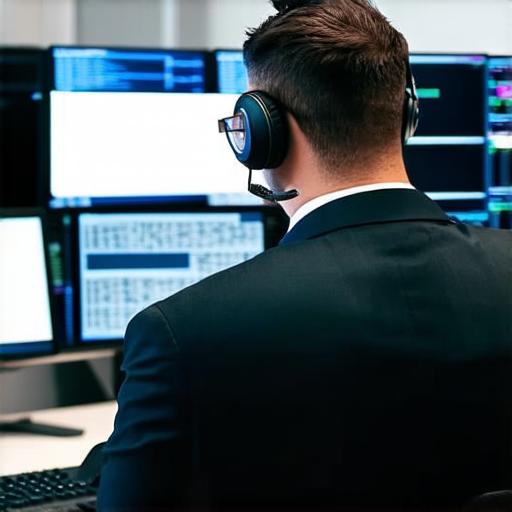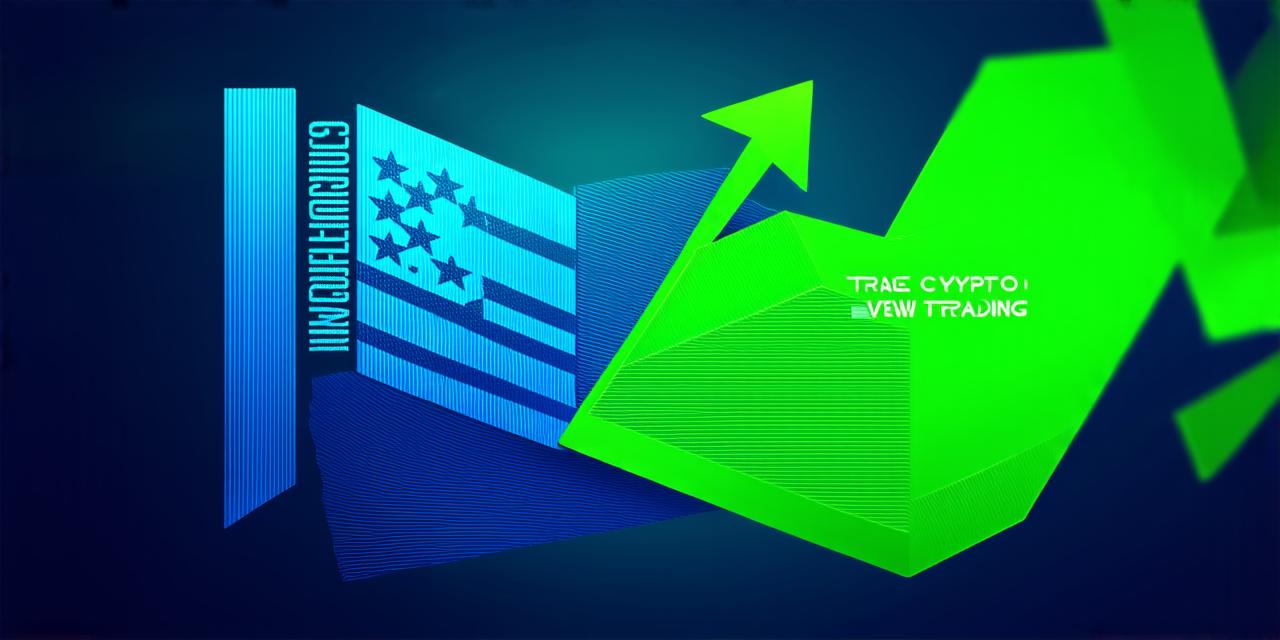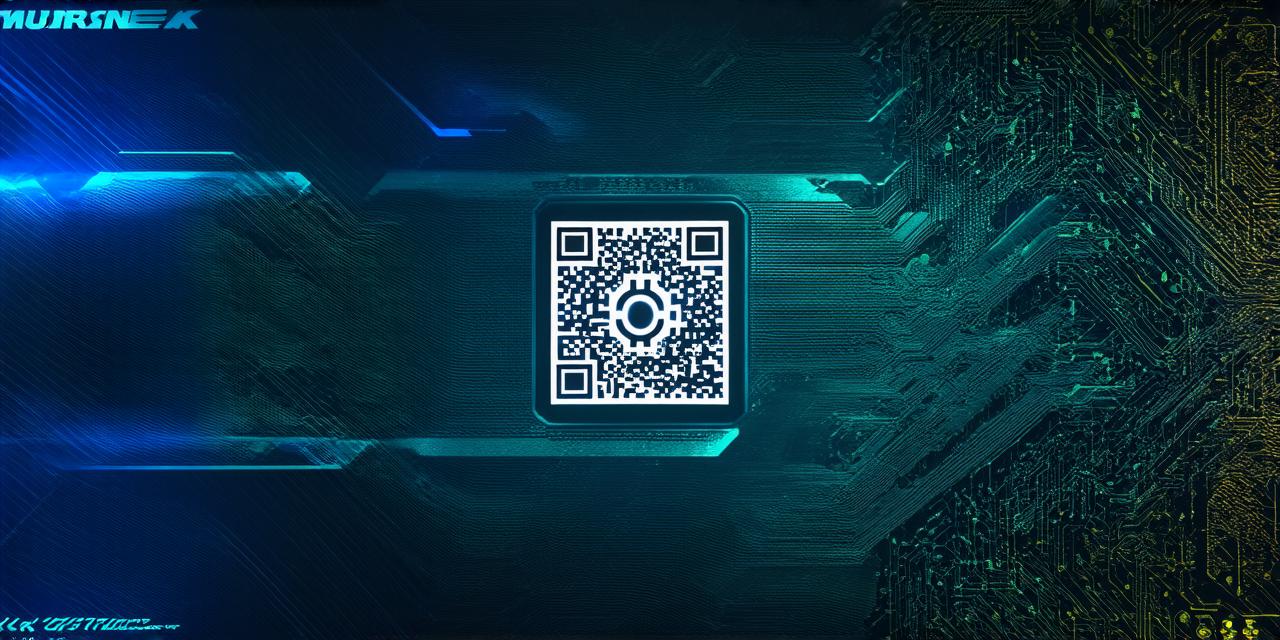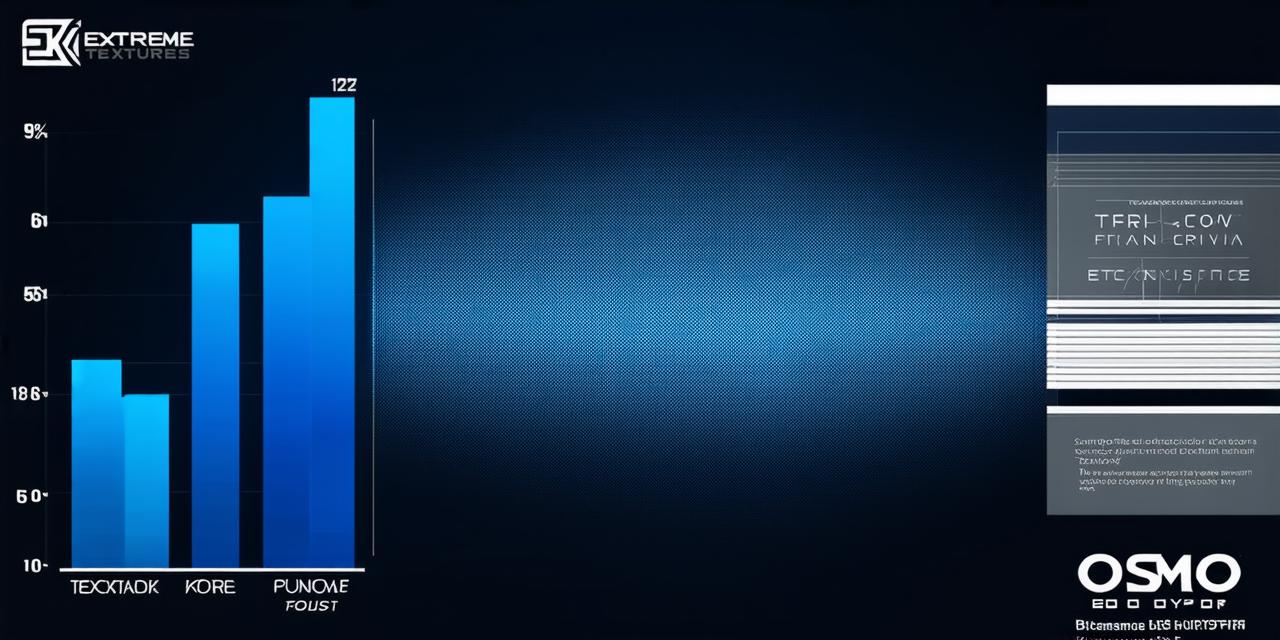In recent years, cryptocurrencies have gained significant traction as a medium of exchange and store of value. With the increasing popularity of cryptocurrencies, more and more businesses are accepting them as payment, and investors are looking for ways to profit from this growing market. As a crypto developer, you may be wondering where to leverage trade crypto in US. In this comprehensive guide, we will explore some of the best opportunities for crypto developers to leverage their skills and knowledge in the rapidly-evolving world of cryptocurrencies.
Understanding the Basics of Cryptocurrency Trading
Before diving into the specifics of where to leverage trade crypto in US, it’s important to understand the basics of cryptocurrency trading. To start, cryptocurrency is a digital asset that operates independently of a central bank and can be bought, sold, and traded on decentralized exchanges (DEXs).
One of the key aspects of cryptocurrency trading is its volatility. Unlike traditional currencies, cryptocurrencies experience significant price swings in short periods of time. For example, Bitcoin, the first and most well-known cryptocurrency, experienced a massive drop in value in 2018 when it went from around $20,000 per coin to just under $4,000 per coin. However, in 2021, Bitcoin’s value surged to over $60,000 per coin.
Another important aspect of cryptocurrency trading is the use of technical indicators and analysis. These tools can help traders make informed decisions about when to buy, sell, or hold a particular asset based on historical price data and other factors.
Where to Leverage Trade Crypto in US: 5 Opportunities for Crypto Developers
1. Decentralized Exchanges (DEXs)
Decentralized exchanges (DEXs) are digital marketplaces that allow users to buy, sell, and trade cryptocurrencies without the need for a central authority or intermediary. DEXs operate on blockchain technology and offer greater security, privacy, and control over transactions than traditional centralized exchanges.
As a crypto developer, you can leverage your skills in building and maintaining DEXs to provide a more efficient and user-friendly trading experience for users. Some popular DEXs include Uniswap, Sushiswap, and Curve.
2. Stablecoins
Stablecoins are cryptocurrencies that are pegged to a stable asset, such as the US dollar, to reduce price volatility. Stablecoins are becoming increasingly popular among traders and investors who want to minimize risk while still taking advantage of the potential rewards of investing in cryptocurrencies.
As a crypto developer, you can leverage your skills in building and maintaining stablecoins to provide a more reliable and less risky investment opportunity for users. Some popular stablecoins include Tether, USD Coin, and Binance USD.
3. Decentralized Finance (DeFi) Applications
Decentralized finance (DeFi) applications are software programs that run on blockchain technology and offer a range of financial services, such as lending, borrowing, and trading. DeFi applications provide greater security, privacy, and control over transactions than traditional centralized finance systems.
As a crypto developer, you can leverage your skills in building and maintaining DeFi applications to provide a more efficient and user-friendly financial experience for users. Some popular DeFi applications include MakerDAO, Compound, and Uniswap V3.
Interesting:
4. Non-Fungible Tokens (NFTs)
Non-fungible tokens (NFTs) are unique digital assets that represent ownership of something, such as artwork, collectibles, or real estate. NFTs are stored on blockchain technology and can be bought, sold, and traded like traditional cryptocurrencies.
As a crypto developer, you can leverage your skills in building and maintaining NFT marketplaces to provide a more efficient and user-friendly trading experience for users. Some popular NFT marketplaces include OpenSea, Rarible, and SuperRare.
5. Crypto Mining
Crypto mining is the process of verifying transactions on a blockchain network by solving complex mathematical equations. Miners are rewarded with newly minted cryptocurrency for their efforts.
As a crypto developer, you can leverage your skills in building and maintaining cryptocurrency mining infrastructure to help miners earn more rewards and to promote the adoption of cryptocurrencies. Some popular cryptocurrencies for mining include Bitcoin, Ethereum, and Litecoin.
FAQs
1. What is a decentralized exchange (DEX)?
A decentralized exchange (DEX) is a digital marketplace that allows users to buy, sell, and trade cryptocurrencies without the need for a central authority or intermediary. DEXs operate on blockchain technology and offer greater security, privacy, and control over transactions than traditional centralized exchanges.
1. What are stablecoins?
Stablecoins are cryptocurrencies that are pegged to a stable asset, such as the US dollar, to reduce price volatility. Stablecoins are becoming increasingly popular among traders and investors who want to minimize risk while still taking advantage of the potential rewards of investing in cryptocurrencies.
1. What is DeFi?
Decentralized finance (DeFi) applications are software programs that run on blockchain technology and offer a range of financial services, such as lending, borrowing, and trading. DeFi applications provide greater security, privacy, and control over transactions than traditional centralized finance systems.
1. What are NFTs?
Non-fungible tokens (NFTs) are unique digital assets that represent ownership of something, such as artwork, collectibles, or real estate. NFTs are stored on blockchain technology and can be bought, sold, and traded like traditional cryptocurrencies.

1. What is crypto mining?
Crypto mining is the process of verifying transactions on a blockchain network by solving complex mathematical equations. Miners are rewarded with newly minted cryptocurrency for their efforts.
Summary
In conclusion, there are many opportunities for crypto developers to leverage their skills and knowledge in the rapidly-evolving world of cryptocurrencies. From decentralized exchanges to stablecoins, DeFi applications, NFTs, and crypto mining, there is no shortage of exciting projects and opportunities for crypto developers to make a difference in the growing market. As a crypto developer, it’s important to stay up-to-date with the latest developments in the industry and to continuously learn and adapt to new technologies and trends. With the right skills and knowledge, you can be a valuable contributor to the future of cryptocurrencies and blockchain technology.


